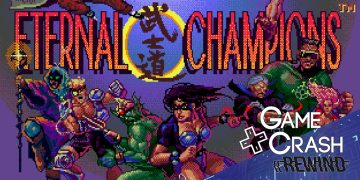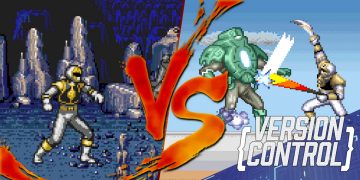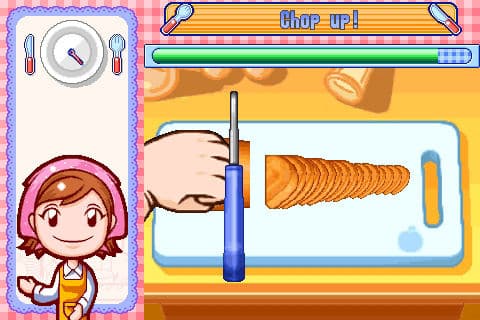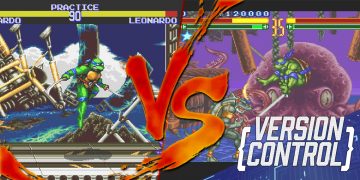This weekend a new Cooking Mama game was finally announced for the Nintendo Switch, 5 years after the last main series title. While the series is pretty fondly regarded for its novel cookery gameplay and cutesy presentation, it’s perhaps not necessarily a major, headline worthy, announcement. Even with the news that the game will include a vegetarian mode – presumably to keep PETA quiet this time.
But you’ll no doubt have seen plenty of those headlines today anyway because this is no “ordinary” Cooking Mama. This is Cooking Mama on blockchain.
Announced by the game’s latest publisher, Planet Digital, the game is touted as being “the first game to integrate blockchain technology on major consoles”.
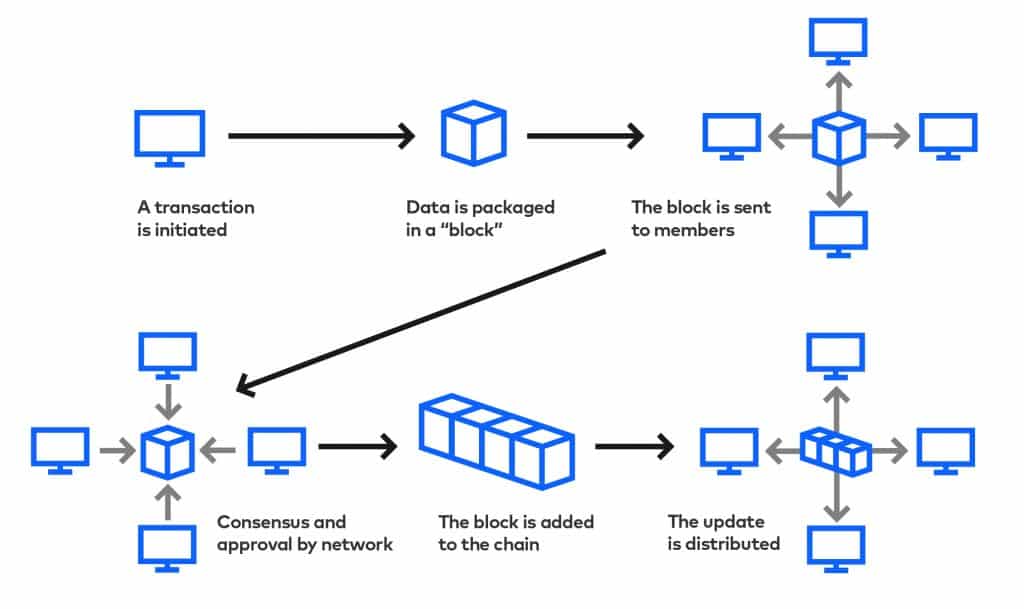
What on earth is a blockchain?
The term blockchain might not mean a lot to most people, but you will almost certainly have heard of its most famous example: Bitcoin. Put simply, a blockchain is simply a long and growing list of data records – the ‘blocks’. Each block contains an encrypted version of the previous block, inextricably linking them in a ‘chain’, as well as any other data the developer of the blockchain chooses, such as information on a transaction.
Writing these new blocks can only be completed by a network of computers within the blockchain verifying the digital signatures created for the transaction. This verification step is what makes the blockchain itself so secure. It’s practically impossible to tamper with the data either being written or once it has been stored.
Blockchains are useful for keeping track of individual pieces of information in a way that cannot be modified and isn’t under the control of any single individual or organisation. Bitcoin uses this to keep an immutable record of financial transactions, but it can in theory be used to keep any kind of decentralised public record.
Can you eat it then?
Cooking Mama isn’t using blockchain as a new cooking ingredient, so what is it actually doing in this game?
The short and simple answer is that Planet Digital is just using blockchain technology as a form of Digital Rights Management for the game. As described below:
Unique Blockchain Private-Keys – Each purchased copy of the game will have unique IDs which will be managed directly through the game’s internal wallet storage. Players will be able to focus on Cooking Mama’s user experience rather than cryptographic key management.
Planet Digital
Private-Key Enabled Balanced DRM – Traditional DRM limits the ability to copy games, while private-keys on blockchain protocols allows easy registration. These combined items provide greater proof of ownership to legitimate owners of a game, while also allowing them to resell games both digitally and in traditional retail outlets.
Stripping away the jargon, what this means is that each purchased copy will come with its own specially generated key (typically a string of randomly generated text characters that’s long enough to be unlikely to be duplicated) that is then written into the blockchain’s data along with any other kind of meta data, such as your Switch’s own unique ID, to create a distinct public record that you own the game.
While the idea that players would, in any other circumstance, have to focus on “cryptographic key management” than the game itself is laughable nonsense, the second point does touch on one possible benefit of using blockchain tech in games in this way. Because the public record on the blockchain can be trusted, a service could also allow users to swap the private keys to their games in a transaction in very much the same way as Bitcoin and other crypto-currencies work.
However, while this kind of digital resale might be an option for developers publishing on their own PC storefronts – it very much is not an option on the Nintendo Switch. As Nintendo does not offer any way to swap the rights of digital titles – and is very unlikely to ever do so – if you buy Cooking Mama for the Switch through the eShop, it’s yours and yours alone forever.
Is that it then?
Planet Digital do list some other features that blockchain supposedly introduces to the game:
Enhanced Multiplayer Experience with Dual Expression – This feature, when enabled, makes every copy of a game subtly different and personal to a user. It utilizes the private-key to change expression algorithms for characters, ingredients and cooking methods.
Planet Digital
Securing Online Events – For promotional events, player records and participation can be tracked while maintaining privacy. In addition, hashes of the running game can be recorded to ensure the game has not been altered to create an unfair advantage.
Digital Assets, Rewards, Recognition – Users will be rewarded with in-game currency (or points, experience, and other items) or earn recognition and certificates. These could be provided by the game, other players, or third parties that host tournaments or other promotions.
In all three instances, while there’s no question that the unique identifier created for the use of the blockchain tech can certainly allow for all of these features – the truth is, the same is true of literally any other kind of unique identifier. The blockchain part of it is irrelevant.
Once again, as we see with the “securing online events” section, the fundamental inclusion of the technology in the game is as DRM. By having their own distinct record of users who own the game, they also can pinpoint and identify users who do not “rightfully” own the game.
As mentioned earlier, to write to the blockchain itself requires validation as well as the rights to be able to do so. Getting around traditional forms of DRM is usually a case of either convincing the DRM company’s server that you do own the game, or spoofing this step entirely.
By using a blockchain to control this DRM, in theory by writing to the blockchain first of all, your purchase is validated and doesn’t need to be again. So while we don’t know what the consequences of trying to beat this DRM might be – such as being entirely locked out of the game – there is at least a possibility that using this tech could be a way to avoid the “always online” style of DRM that’s pretty widely maligned from all corners.
… But why?
While it’s hard to say why Cooking Mama of all things – though perhaps developers Office Creates’ experience with the quite high levels of piracy on the Nintendo DS ultimately coloured that decision – the roots of the introduction of blockchain tech into the game go right to the heart of the game’s new publisher.
Planet Digital is a pretty new company but it does have industry pedigree involved. Former Playstation Europe President, Chris Deering and Kelly Sumner, founder of Take2/Rockstar, for example. But, despite the big names, they’re still a small business compared to most of their competition.
Planet Digital’s supposed unique selling point is the fact they’ve put blockchain technology at the heart of the company. Claiming to be using their own crypto-currency to fund their business. Though, the currency they mention – RKT – is in fact already in use as the official crypto-currency of the Gibraltar Stock Exchange and there’s no apparent record that Planet Digital ever actually made any such sales.
Whether this pays off or whether Planet Digital are simply trading on a popular buzzword technology that sounds somewhat more innovative than it actually is… well, we’ll have to wait and see.








